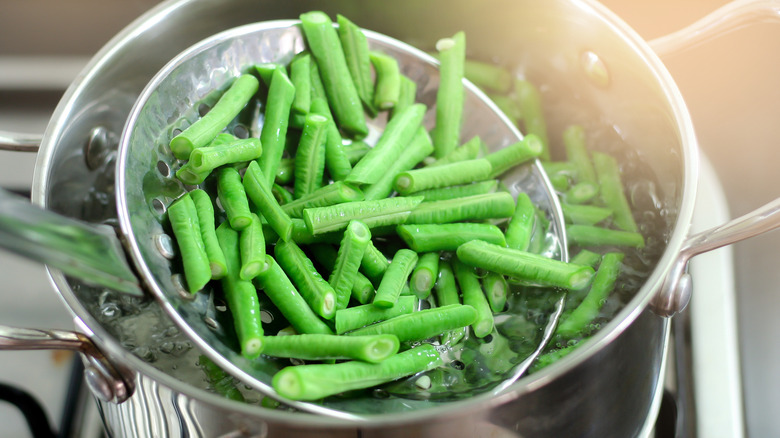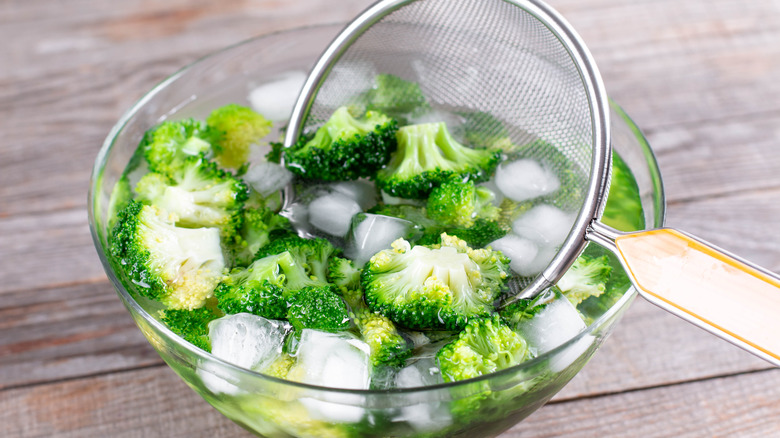The Blanching Mistake That's Costing You Major Veggie Flavor
You might not believe us when we say blanching can be a vegetable's best friend, but that is only because you've probably been the victim of a lot of blanching mistakes. Boiling food of any kind has a bit of a well-deserved bad reputation these days. Generations of Americans grew up on bland, boiled vegetables, dropped from the freezer straight into a pot and left to cook until they were soggy and flavorless. Being force fed plate after plate of limp green beans could understandably turn anyone off to the idea of blanching your vegetables — and other techniques, like roasting, work well enough that you might never think to bring a plate of fresh vegetables near a pot of boiling water again.
The thing is, blanching can not only be great, it can often be the best way to make vegetables both flavorful while retaining great color and texture. The big blanching mistake your parents and grandparents may have made is overcooking the vegetables they boiled by simply leaving them in the water too long. The reality is most veggies only need a few minutes or less in boiling water to get all the flavor benefits of cooking — anything after that is just adding water and breaking down the vegetable too much. And that's not the only way you can overcook something blanched, with one more mistake being much easier to overlook and a big source of bland food.
Don't let your vegetable steam after blanching
Like a roast coming out of the oven, blanched vegetables are still cooking from residual heat after leaving the water. This extra heat can do a few different things to your blanched vegetables that you want to avoid. The first is that your vegetables are losing moisture to evaporation as they stay hot and steam. The second is that an elevated temperature will continue to cook your vegetables, breaking them down and causing a lot of the same problems as if you had boiled them for too long. The whole point of blanching is to quickly get the flavor boost and slight tenderization of cooking without extended heat exposure that could turn them mushy or bland, and letting your vegetables stay warm can defeat that.
Instead there are a few steps you can take to prevent the effects of overcooking your vegetables after blanching. If you want your vegetables to stay warm, but also moist, you can coat them in oil right after they finish cooking. This creates a barrier that seals in the water trying to escape from evaporation. If you are cooling the vegetables down, or if they are being reheated in a pan or oven anyway, using a cold water shock to stop them from cooking can also prevent moisture loss, and keep things crisp by stopping the cooking right where you want it. Both preventive steps are simple, and your blanched vegetables will be that much better for them.

